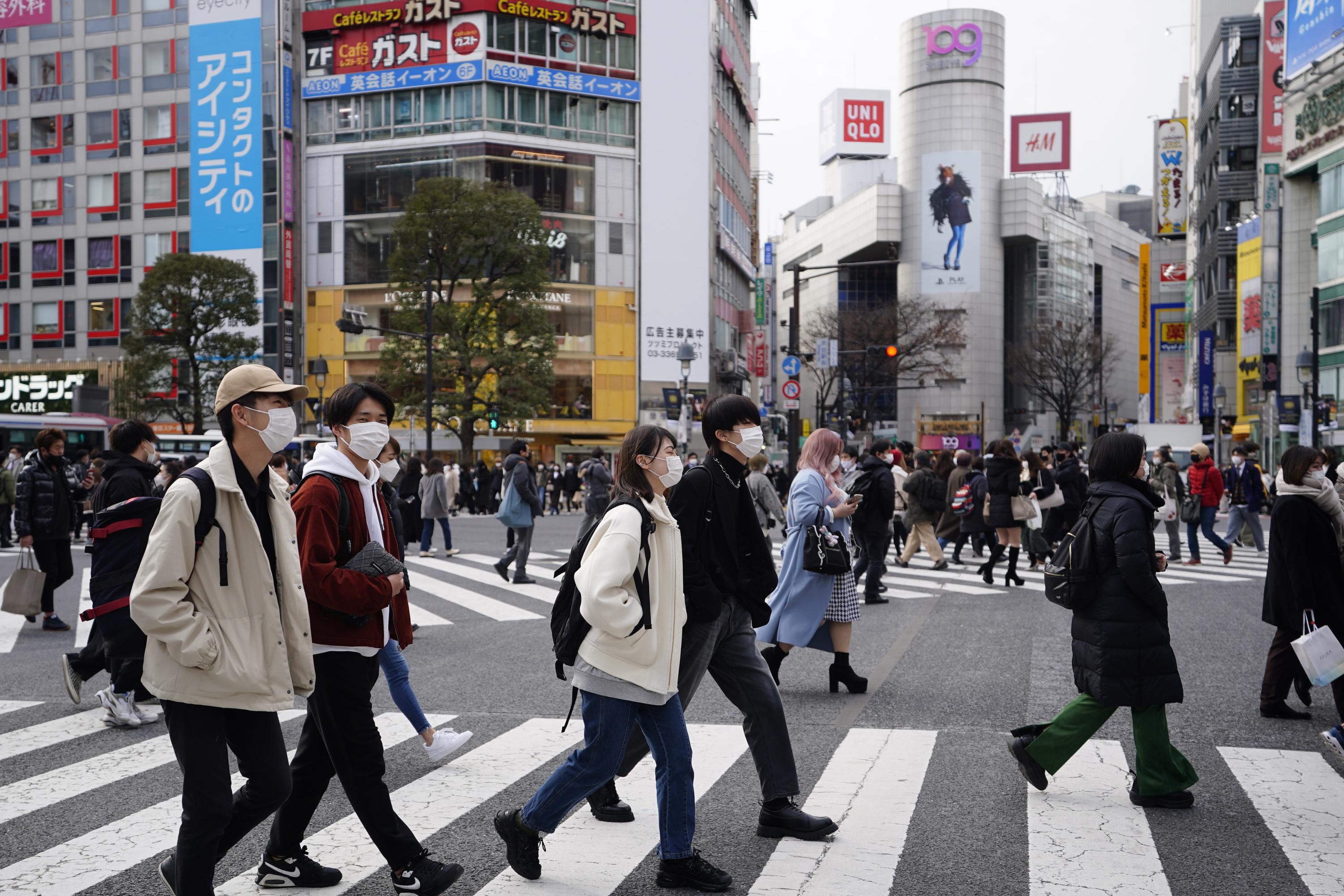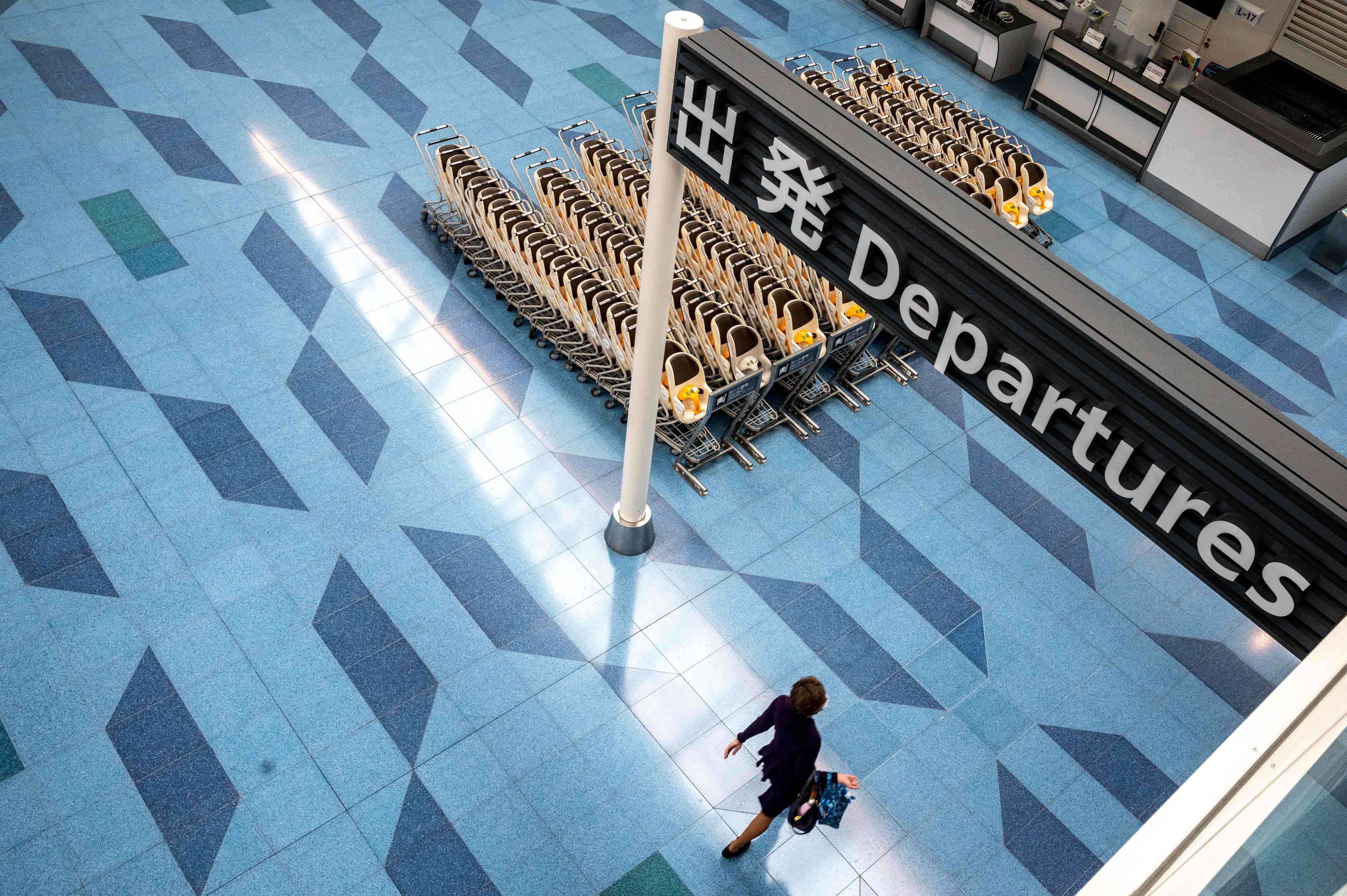Japan widens Covid-19 curbs as infections surge past 60,000 for the first time
Sign up now: Get ST's newsletters delivered to your inbox

The surge occurred despite Japan imposing one of the world's strictest border control measures to deal with the Omicron variant.
PHOTO: EPA-EFE
Follow topic:
TOKYO - Japan breached 60,000 Covid-19 cases in a single day for the first time on Tuesday (Jan 25) just three days after infections crossed the 50,000 mark, as Prime Minister Fumio Kishida widened quasi-emergency curbs to 18 more prefectures.
Mr Kishida, in his sternest political test, is fighting an uphill battle to put a lid on Covid-19 amid the ferocious spread of the Omicron variant.
The quasi-emergency declaration is already in effect in 16 prefectures, beginning in Okinawa, Hiroshima and Yamaguchi on Jan 9, and then in 13 regions including Tokyo and Aichi for three weeks from last Thursday.
Tuesday's decision to expand curbs further to prefectures including Hokkaido, Osaka and Fukuoka starting from Thursday, will put 34 of Japan's 47 prefectures under the measure.
Mr Kishida said on Monday that a more forceful state of emergency remains unnecessary, noting that the ratio of serious cases is low and suggesting that, despite record-busting figures, the infection rate was "clearly slowing in some areas".
There were 2.2 times more cases in the seven-day period ending on Tuesday than a week ago - down from an increase of 3.7 times in the last week-on-week period.
Still, records tumbled like dominoes across Japan on Tuesday as the nation set a new all-time high of 62,613 cases. There were 41 deaths in total, while 444 patients were in severe condition.
As many as 30 prefectures registered fresh single-day peaks, including Tokyo (12,813 cases), Osaka (8,612), Aichi (4,120), Fukuoka (3,389) and Hyogo (3,360).
The surge has occurred despite Japan imposing one of the world's strictest border control measures to deal with the Omicron variant, with all non-residents effectively barred from entry until February.
The move has hurt Japan's image, with small-scale protests worldwide especially among foreign students who have been unable to attend classes in person, and foreigners who cannot return to their spouses and children in the country.

Japan's most influential business lobby Keidanren on Monday also slammed what it called a "policy of seclusion" in keeping borders closed.
"There is no point keeping the measure in place, given that Omicron has already become the dominant strain," Keidanren chairman Masakazu Tokura told a news conference. "We are not doing business only at home."
He also took aim at the government's requirement for a 10-day quarantine on close contacts of Covid-19 patients, asking: "Why does Japan impose 10 days when the rest of the world needs only five?"
Frustrations are boiling over, with Mr Kishida's approval ratings dipping in two opinion polls over the weekend, though they remain above 50 per cent.
Japanese municipalities are bemoaning the slow distribution of Covid-19 booster jabs. Just under 300,000 shots were delivered on Monday , a fraction of the more than one million doses administered a day under former PM Yoshihide Suga.
Some policy suggestions by the government's top expert, Dr Shigeru Omi, are being ridiculed. He apologised last weekend after saying that there was no need to limit movement so long as large gatherings are avoided - a policy that goes against official government policy, and which prefecture leaders said had "sowed confusion".
His proposal that young people do not have to be tested for Covid-19 to prevent hospitals from being overwhelmed has also been criticised by other medical experts.
"Where's the science? I think they are completely confused or politicised," Dr Kenji Shibuya of the Tokyo Foundation Policy Research Centre told an online forum, stressing the need for rigorous testing to weed out cases and ring-fence clusters.
Japan tweaked its guidelines on Tuesday so that a Covid-19 test will not be needed for symptomatic close contacts to be deemed infected, to prevent testing centres from being overwhelmed, Health Minister Shigeyuki Goto said.

